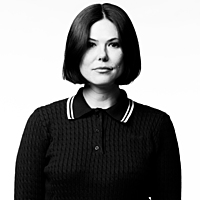4 must-have traits to make it into this top-performing fund
Just like how weddings and funerals bring out the best and the worst in people, the Aoris Investment Management team believes periods of uncertainty do the same for companies - exposing not just strategy, but culture, leadership, and resilience under pressure.
As portfolio manager Stephen Arnold puts it, their investment process is like sculpting: start with everything, and chip away until what remains is a concentrated, high-quality portfolio of 10-15 global businesses.
In a roundtable session reporting on their insights from a recent US trip, the fund spoke to four key insights from the trip and how they influence their picks in defining what separates the best from the rest.
Steering clear of macro noise
Arnold spoke about being comfortable having a large no-go zone that guides Aoris’ selection process.
As a general rule of thumb, macro factors like interest rates, housing cycles, trade policy, or political turbulence - anything that could meaningfully impact earnings - are red flags.
Using this barometer rules out most healthcare, autos, semiconductors, defence and emerging markets.
“We don’t want to read the front page of the paper and see anything that materially affects a business we own,” Arnold said.
They’re also wary of companies overly-reliant on a single product and steer clear of the “sharp end of change.”
Arnold points to electric vehicles, weight-loss drugs, and AI chipmakers as examples of high-uncertainty sectors where the rules can shift quickly and which are prone (and vulnerable) to government involvement.
“We want growing businesses...they just need to be growing in markets where share moves slowly and you don’t give it back easily.” Arnold said.
Company culture drives resilience
Tariffs and the melodramas taking place in the White House might dominate water cooler chat, but on the ground, it was a different story.
“Throughout two weeks of meetings, what stood out was how little we heard about the external environment, despite how much we’d been reading about it,” says Arnold.
Stronger companies demonstrate thoughtful strategy, customer focus, and a willingness to learn from mistakes.
In contrast, businesses that focus solely on cost-cutting or aggressively pass on tariff costs risk losing customer loyalty in the long run.
Arnold spoke about one of their portfolio holdings, Grainger (NYSE: GWW), a US-based industrial distributor. Instead of using tariffs as cover to raise prices indiscriminately, they’re taking a customer-first approach, knowing that loyalty is hard to win back once lost.
“Some peers slapped on blanket price increases. Grainger said, ‘We’ll go slow, not fast; selective, not homogenous.’”
“Hard periods amplify the differences between the best and the rest,” says portfolio manager Delian Entchev.
“Many of our companies give frontline staff autonomy, which helped them outperform during COVID, inflation shocks, and now tariff waves.”
Long-term mindset matters most
The companies Aoris invests in are led by people who take ownership, invest through cycles, and make thoughtful long-term decisions. L’Oréal (EPA: OR) is one they used as a key example.
Amid a slower Chinese consumer backdrop, their investor relations team didn’t offer excuses.
“They said, ‘Sure, some customers are spending less but 400 million adults in China still don’t use our products. That’s the opportunity,’” says Arnold.
And while many consumer companies cut back on marketing during tough times, L’Oréal, as one of the largest advertisers in the world, see it as an investment, not a discretionary cost.
“They told us, figuratively, if there’s a euro on the road, our competitors put it in their pocket - we spend it on the brand,” Arnold adds.
Another long-term holding, Visa (NYSE: V), epitomises Aoris’ belief that even market leaders can’t afford to act like monopolies.
“Visa doesn’t take its position for granted. They keep finding ways to stay relevant to both merchants and consumers,” says Arnold, even with the rise of new payment types like buy-now-pay-later or cryptocurrency.
The Aoris team also added to Microsoft (NASDAQ: MSFT) earlier this year, a decision that went against prevailing market narratives around slowing data centre demand.
With no shortage of information, "we try to emphasise hearing [directly] from companies," Arnold explains.
“We saw reports about cancelled leases. But talking to the company directly gave us a clearer view that demand was still solid. That’s where we put our weight, not in mimetic headlines."
AI matures into a core business tool
AI has moved from experimentation to broad implementation, with companies now using it to boost efficiency and margins.
“It’s progressed much faster than we expected,” says Entchev. “And we’re not hearing of any business that’s implemented AI features and then rolled them back.”
Aoris holds several companies that are embracing AI at scale. Microsoft is using AI internally to drive sales, reduce costs, and code more efficiently, but is also the creator of its own AI tools like Copilot.
As such, they're both selling and using AI and have been able to grow their revenue double digits in the last couple of years as a result.
Visa is deploying AI to cut fraud and reduce friction in transactions, and Moody’s (NASDAQ: MCO) is using it to automate research and ratings.
L’Oréal is using AI to personalise advertising campaigns, reduce content creation bottlenecks, and optimise media spend.
“This is becoming a differentiator. If your IT systems aren’t modernised, or your data isn’t centralised, it’s going to be hard to keep up,” says Entchev. “It’s another separator between the best and the rest.”
2 topics
4 stocks mentioned
1 contributor mentioned
.jpg)
.jpg)